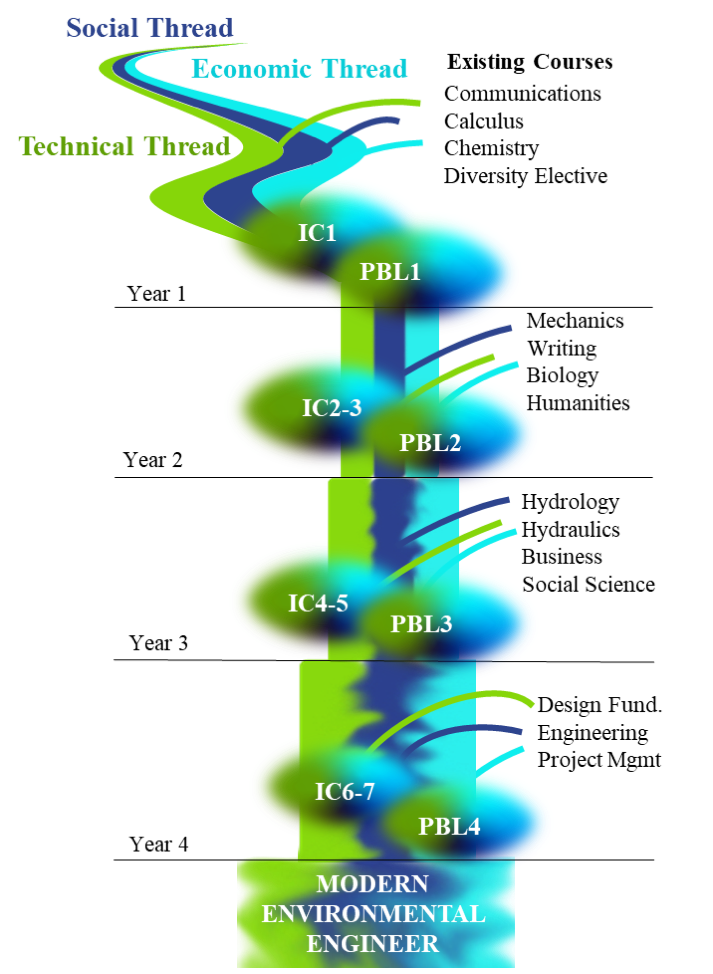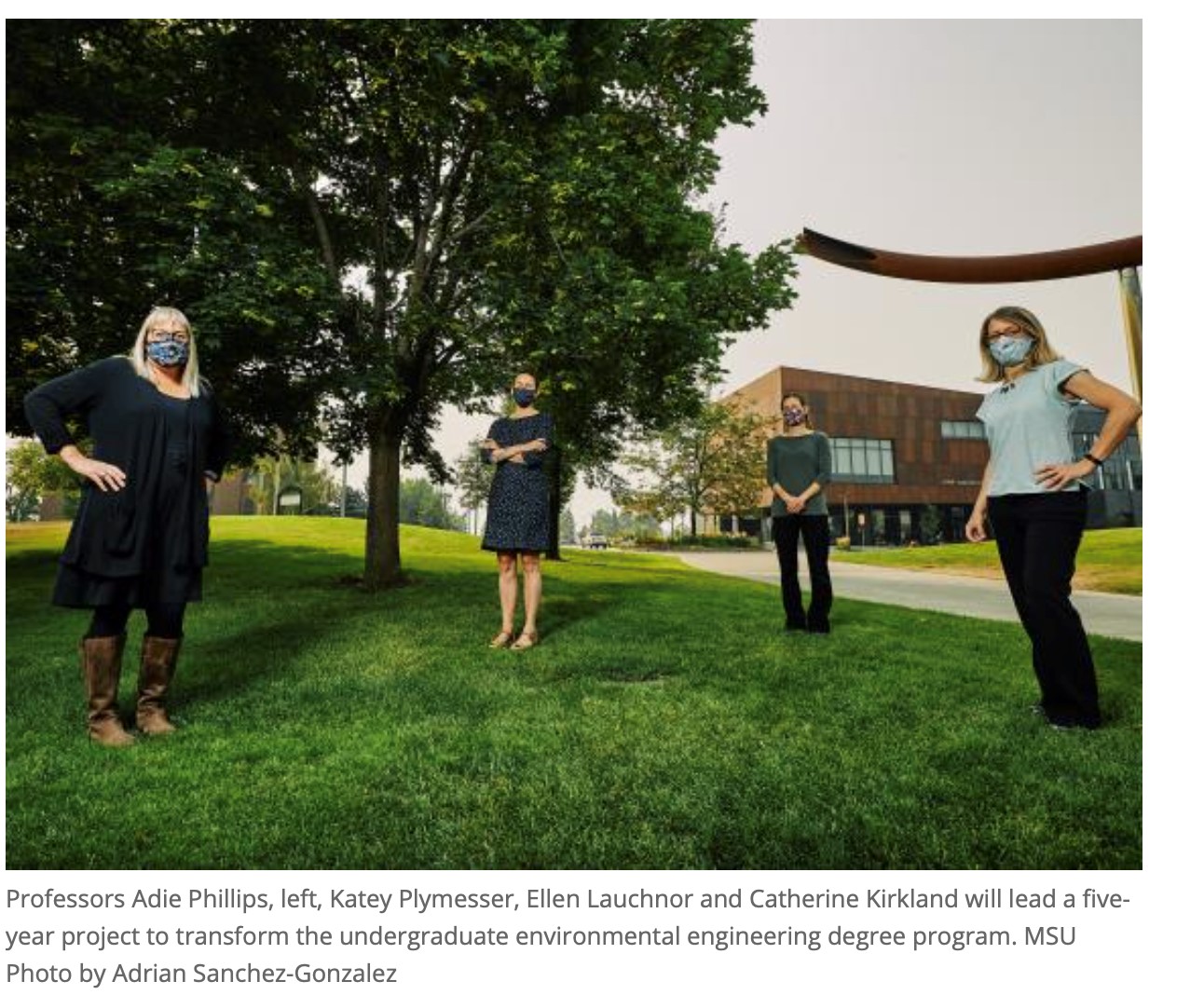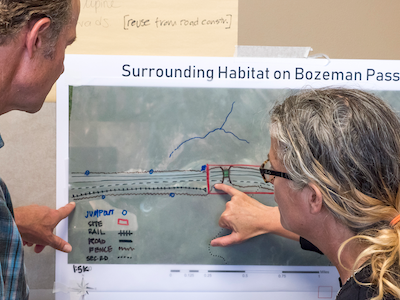Research
Research Interests
Our department's research focus areas and strengths include:
- Structures, Reinforced Concrete, Alternative Materials
- Transportation Engineering
- Environmental Engineering
- Water Resources, Constructed Wetlands, Ecohydraulics
- Geotechnical Engineering
- Snow Science and Cold Research
For more details, check out this listing of faculty research interests:
Ahmed Al Kaisy
Traffic safety, traffic operations, intelligent transportation systems, traffic control
and optimization, highway geometric design
Christopher Allen
Applying constructed wetlands to wastewater treatment in cold climates, as well as,
nitrogen cycling and rhizosphere dynamics within, and greenhouse gas emissions from
treatment wetlands.
Michael Berry
Alternate Concrete Materials, Seismic Performance of Structural Elements and Systems
Matthew Blank
Fish passage, fish barriers, river restoration, dam removal, hydrology, hydraulics
Chris Borstad
Glacier Mechanics, Fracture Mechanics of Glaciers and Ice Shelves, Iceberg Calving,
Ice Sheet Modeling, Ice Shelf Collapse, Crevasse Formation and Evolution, Snow Mechanics,
Avalanche Triggering, Avalanche Hazard Mapping and Risk Analysis, Avalanche Flow Dynamics'
Joel Cahoon
Hydraulics, Open Channel Hydraulics, Closed Conduit Hydraulics, Fluid Mechanics
Alfred Cunningham
Biofilm process in porous media, biofilm biotechnology, geological sequestration of
CO2
Damon Fick
Behavior and design of reinforced concrete slab-column connections, remote monitoring
of bridges, earthquake engineering, performance of friction-stir-welded structures,
accelerated bridge design and construction, structural applications of biocement materials,
seismic performance of masonry walls
Kevin Hammonds
Ice & Snow Mechanics, Remote Sensing, Materials Characterization
Mohammad Khosravi
Geotechnical earthquake engineering, Liquefaction and its remediation, Ground improvement,
Seismic performance of soil structures, Slope stability and embankment design
Catherine Kirkland
Magnetic resonance, wastewater treatment, bioremediation, biofilms
Ellen Lauchnor
Biofilms in wastewater treatment and biological nitrogen removal, Impact of emerging
contaminants on wastewater treatment processes, Fundamentals and applications of microbially
induced mineral formation, Reactive transport in biofilm systems
Zbigniew Lewandowski
Biofilm structure and function, Microbially Influenced Corrosion, Microbial fuel cells
Ladean McKittrick
Snow Mechanics, Structural Mechanics, Finite Element Modeling
Bob Mokwa
STEM education, soil mechanics, geotechnical and materials engineering, structural
settlement and forensic engineering, soil-structure interactions and x-ray computed
tomography
Adrienne Phillips
Microbes in extreme environments,Biofilms in porous media,Bioremediation,Fracture sealing and wellbore integrity,Biocements
Katey Plymesser
Fish Passage Engineering, Ecohydraulics, Computational Fluid Dynamics
Otto Stein
Innovative Wastewater Treatment/Treatment Wetlands, Erosion Mechanics
Craig Woolard
Biological, chemical and physical treatment processes, Asset management
Research Entities
These entities are listed because of their strong affiliation with our department, but our research is interdiscplinary and often involves other research entities in the college as well as other user facilities at MSU. The civil engineering department also includes several instructional laboratories.


Revolutionizing Engineering Departments (RED) program
In December of 2020, the Environmental Engineering program was awarded a National Science Foundation award from the Improving Undergraduate STEM Education/Professional Formation of Engineers (IUSE/PFE) Revolutionizing Engineering Departments (RED) program. This 5-year, $1 million dollar grant is intended to transform undergraduate education. The proposal, titled Sustainable TRansformation of Environmental engineering Education for Modern society (STREEM) is intended to transform the undergraduate program by fostering the faculty culture change needed to transform the traditional topic-focused course curriculum to the integrated project based model developed around key knowledge threads and progressive problem-based learning activities. The environmental engineering program at MSU can lead this change due to a unique alignment of faculty and institutional support.
The ‘river of knowledge’ approach outlined in the STREEM proposal and shows how the IPBC model will blend technical, economic, and social knowledge and skills through the four years of the undergraduate degree. These knowledge threads will be designed to also incorporate concepts covered in other existing topic-focused courses and connect them to workplace environmental engineering problems.
Faculty will use the technical thread to integrate math and science concepts with critical environmental engineering concepts, providing students with context to help retain knowledge and realize relevance in practice. For example, the chemistry concept of solubility (covered in Freshman chemistry) becomes more tangible and memorable in the context of coagulation processes in water treatment (typically covered in the Junior or Senior year). The proposed approach would allow students to make this critical connection during the freshman year and improve understanding and retention. Likewise, the economic thread will allow faculty to integrate life cycle costs and risk assessment with fundamental business, economics, probability, and statistics concepts. For example, estimating the likelihood and consequence of a flood requires integration of concepts from economics and statistics. Faculty will employ the social thread to emphasize the environmental engineers’ role in educating the public and policy makers. To be effective in this role, the engineer must understand how leadership, ethics, law and regulations, and the public process influence decisions and projects. For example, designing a new wastewater treatment facility must include an understanding of the public processes for funding and site selection and how to effectively communicate to a lay audience.

The Center for Biofilm Engineering has been a world leader in microbial biofilm research since it was established at MSU in 1990. CBE's multidisciplinary research teams develop beneficial uses for biofilms and find solutions to industrially relevant biofilm problems, with applications in medicine, food safety, energy and much more.

The Subzero Research Laboratory is a world-class, state-of-the-art suite of facilities used to study snow, ice and the effects of the cold on projects across a range of scientific disciplines.

Research Opportunities
- It is our intention to support all qualified graduate students with either RA or TA positions (subject to availability of funding).
- Available to undergraduates at MSU and other schools.
- Students gain hands-on research experience working with a faculty adviser.
- Provides residence hall lodging, reimbursement for travel to/from Bozeman, and $5,000 stipend.
- Runs June through August.
- Application deadline is generally in February.
Doing research is a great way to learn about a topic and gain valuable experience that can aid in applying to graduate programs or future employment.
Undergraduates interested in gaining research experience should contact faculty members directly based on their area of interest.
For general questions and more information about research opportunities, contact Craig Woolard. The engineering college's research resources webpage also provides an overview of research opportunities for faculty and students.
More Research News
